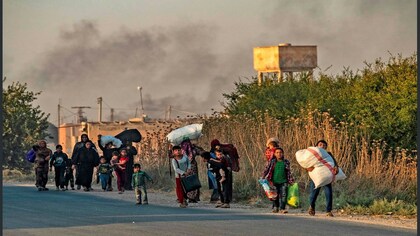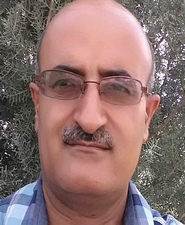Europe's Attachment to Iran's Regime
20:29 - 9 November 2011

Berlin
The Iranian regime’s plot to murder the Saudi ambassador to the United States, which could have killed dozens of Americans in Washington, has not deterred Europe’s governments from continuing to embrace the leaders of the Islamic Republic.
Indeed, five European lawmakers, including German parliamentarians Barbara Lochbihler and Kurt Lechner, were supposed to travel to Tehran to meet with Iranian politicians this week. The political “trip” would have cost roughly 100,000 euros of EU taxpayer funds. (Last Wednesday, however, Tehran apparently denied visas to a number of European Union officials in advance of the five-day trip.)
Nevertheless, the EU remains Iran most significant global trade partner. In 2010, the total trade volume between the Islamic Republic and the EU stood at more than €25 billion. EU imports from Iran\'s energy sector amounted to roughly 90 percent.
In return, Iran’s rulers subsequently divert these energy profits into illicit nuclear activities and terrorist proxies, including Hezbollah in Lebanon and Hamas in the Gaza Strip.
Europe has witnessed its share of Iranian terror attacks. In 1989, Iran murdered a Kurdish opposition leader and two colleagues in Vienna. According to a report in the Austrian daily Der Standard, Austrian Green Party politician Peter Pilz said authorities in Vienna have “very convincing” evidence showing Iranian president Mahmoud Ahmadinejad’s involvement with the murder of Iranian-Kurdish politician Abdul-Rahman Ghassemlou. The Austrian media reported that Ahmadinejad furnished weapons to the Iranian agents who committed the murders.
Three years later, in 1992, a shooting killed for Iranian Kurdish dissidents in the Greek restaurant Mykonos in Berlin. German court later ruled that Iran was responsible for the crime. Yet in spite of Iran’s long-standing practice of contract killings in Europe, Germany caved in to Iranian pressure and released the two convicted murderers in 2007.
European companies continue to court Iranian business, and their governments make little attempt to stop them.
Germany remains Iran’s number one EU trade partner, with overall annual business hovering around €4 billion. During the first half of 2011, German imports of Iranian goods increased to €453 million from €382 million in the same period a year earlier. During the same period, German consumption of Iranian gas and oil rose to €280 million from €197 million in the first half of 2010.
Against the backdrop of fresh Iranian terror plots, conservative British EU parliamentarian Struan Stevenson to his credit described it as “a deeply retrograde step that this House, that the Conference of Presidents, has agreed to send a delegation to Tehran.”
Stevenson reminded his EU colleagues that earlier in the month, the United States had uncovered an Iranian plot to assassinate an ambassador in Washington, and Tehran had just transferred 300 prisoners—most of them students, guilty only of peaceful protest—to death row for imminent execution.
Yet last week, on the very day Iran denied visas to the European delegation , the German Foreign Council on Foreign Relations (DGAP), one of Germany’s leading foreign policy think tanks and a recipient of German Foreign Ministry funding, hosted Iranian deputy finance minister Muhammad Reza Farzin. Paul von Maltzahn, DGAP president and former German ambassador to Iran, had invited Farzin to Berlin.
German author Matthias Küntzel slammed the DGAP’s decision and called for tough sanctions against Tehran. Dr. Küntzel, author of an authoritative book on German- Iranian economic and political relations, wrote on his website last Tuesday that the DGAP’s “orientation takes for granted an acceptance of the Iranian bomb and Iranian terror.”
According to a report in the Israeli paper Ynet, “Berlin’s Foreign Ministry had promised to cancel all of the official meetings scheduled for the Iranian minister, but a foreign office spokesman said that ‘no official meeting was planned, so there was no official meeting to cancel.”’
The German Foreign Ministry spokesman added that German lawmakers were “free to meet with whomever they choose.”
Ruprecht Polenz, the controversial head of the Bundestag foreign affairs committee, and a member of Chancellor Angela Merkel’s Christian Democratic Union party, also met with Farzin. In June, Polenz cordially welcomed a delegation of Iranian parliamentarians to the Bundestag.
The Iranian leaders have made it abundantly clear that they are not interested in playing by the rules.
European leaders face a choice. If they are serious about stopping the Iranian regime’s illegal nuclear program, its massive repression of the country’s pro-democracy movement, and its assassinations and terrorist activities abroad, they must end their support for the tyrants of Tehran. The first steps would involve sanctioning the Central Bank of Iran (CBI) and the Iran\'s Revolutionary Guard Corps (IRGC). While the Bush administration sanctioned the IRGC in 2007 as a “global terrorist” entity, the EU, particularly Germany, has vehemently resisted penalizing the IRGC.
• BY: BENJAMIN WEINTHAL, www.weeklystandard.com
The Iranian regime’s plot to murder the Saudi ambassador to the United States, which could have killed dozens of Americans in Washington, has not deterred Europe’s governments from continuing to embrace the leaders of the Islamic Republic.
Indeed, five European lawmakers, including German parliamentarians Barbara Lochbihler and Kurt Lechner, were supposed to travel to Tehran to meet with Iranian politicians this week. The political “trip” would have cost roughly 100,000 euros of EU taxpayer funds. (Last Wednesday, however, Tehran apparently denied visas to a number of European Union officials in advance of the five-day trip.)
Nevertheless, the EU remains Iran most significant global trade partner. In 2010, the total trade volume between the Islamic Republic and the EU stood at more than €25 billion. EU imports from Iran\'s energy sector amounted to roughly 90 percent.
In return, Iran’s rulers subsequently divert these energy profits into illicit nuclear activities and terrorist proxies, including Hezbollah in Lebanon and Hamas in the Gaza Strip.
Europe has witnessed its share of Iranian terror attacks. In 1989, Iran murdered a Kurdish opposition leader and two colleagues in Vienna. According to a report in the Austrian daily Der Standard, Austrian Green Party politician Peter Pilz said authorities in Vienna have “very convincing” evidence showing Iranian president Mahmoud Ahmadinejad’s involvement with the murder of Iranian-Kurdish politician Abdul-Rahman Ghassemlou. The Austrian media reported that Ahmadinejad furnished weapons to the Iranian agents who committed the murders.
Three years later, in 1992, a shooting killed for Iranian Kurdish dissidents in the Greek restaurant Mykonos in Berlin. German court later ruled that Iran was responsible for the crime. Yet in spite of Iran’s long-standing practice of contract killings in Europe, Germany caved in to Iranian pressure and released the two convicted murderers in 2007.
European companies continue to court Iranian business, and their governments make little attempt to stop them.
Germany remains Iran’s number one EU trade partner, with overall annual business hovering around €4 billion. During the first half of 2011, German imports of Iranian goods increased to €453 million from €382 million in the same period a year earlier. During the same period, German consumption of Iranian gas and oil rose to €280 million from €197 million in the first half of 2010.
Against the backdrop of fresh Iranian terror plots, conservative British EU parliamentarian Struan Stevenson to his credit described it as “a deeply retrograde step that this House, that the Conference of Presidents, has agreed to send a delegation to Tehran.”
Stevenson reminded his EU colleagues that earlier in the month, the United States had uncovered an Iranian plot to assassinate an ambassador in Washington, and Tehran had just transferred 300 prisoners—most of them students, guilty only of peaceful protest—to death row for imminent execution.
Yet last week, on the very day Iran denied visas to the European delegation , the German Foreign Council on Foreign Relations (DGAP), one of Germany’s leading foreign policy think tanks and a recipient of German Foreign Ministry funding, hosted Iranian deputy finance minister Muhammad Reza Farzin. Paul von Maltzahn, DGAP president and former German ambassador to Iran, had invited Farzin to Berlin.
German author Matthias Küntzel slammed the DGAP’s decision and called for tough sanctions against Tehran. Dr. Küntzel, author of an authoritative book on German- Iranian economic and political relations, wrote on his website last Tuesday that the DGAP’s “orientation takes for granted an acceptance of the Iranian bomb and Iranian terror.”
According to a report in the Israeli paper Ynet, “Berlin’s Foreign Ministry had promised to cancel all of the official meetings scheduled for the Iranian minister, but a foreign office spokesman said that ‘no official meeting was planned, so there was no official meeting to cancel.”’
The German Foreign Ministry spokesman added that German lawmakers were “free to meet with whomever they choose.”
Ruprecht Polenz, the controversial head of the Bundestag foreign affairs committee, and a member of Chancellor Angela Merkel’s Christian Democratic Union party, also met with Farzin. In June, Polenz cordially welcomed a delegation of Iranian parliamentarians to the Bundestag.
The Iranian leaders have made it abundantly clear that they are not interested in playing by the rules.
European leaders face a choice. If they are serious about stopping the Iranian regime’s illegal nuclear program, its massive repression of the country’s pro-democracy movement, and its assassinations and terrorist activities abroad, they must end their support for the tyrants of Tehran. The first steps would involve sanctioning the Central Bank of Iran (CBI) and the Iran\'s Revolutionary Guard Corps (IRGC). While the Bush administration sanctioned the IRGC in 2007 as a “global terrorist” entity, the EU, particularly Germany, has vehemently resisted penalizing the IRGC.
• BY: BENJAMIN WEINTHAL, www.weeklystandard.com



